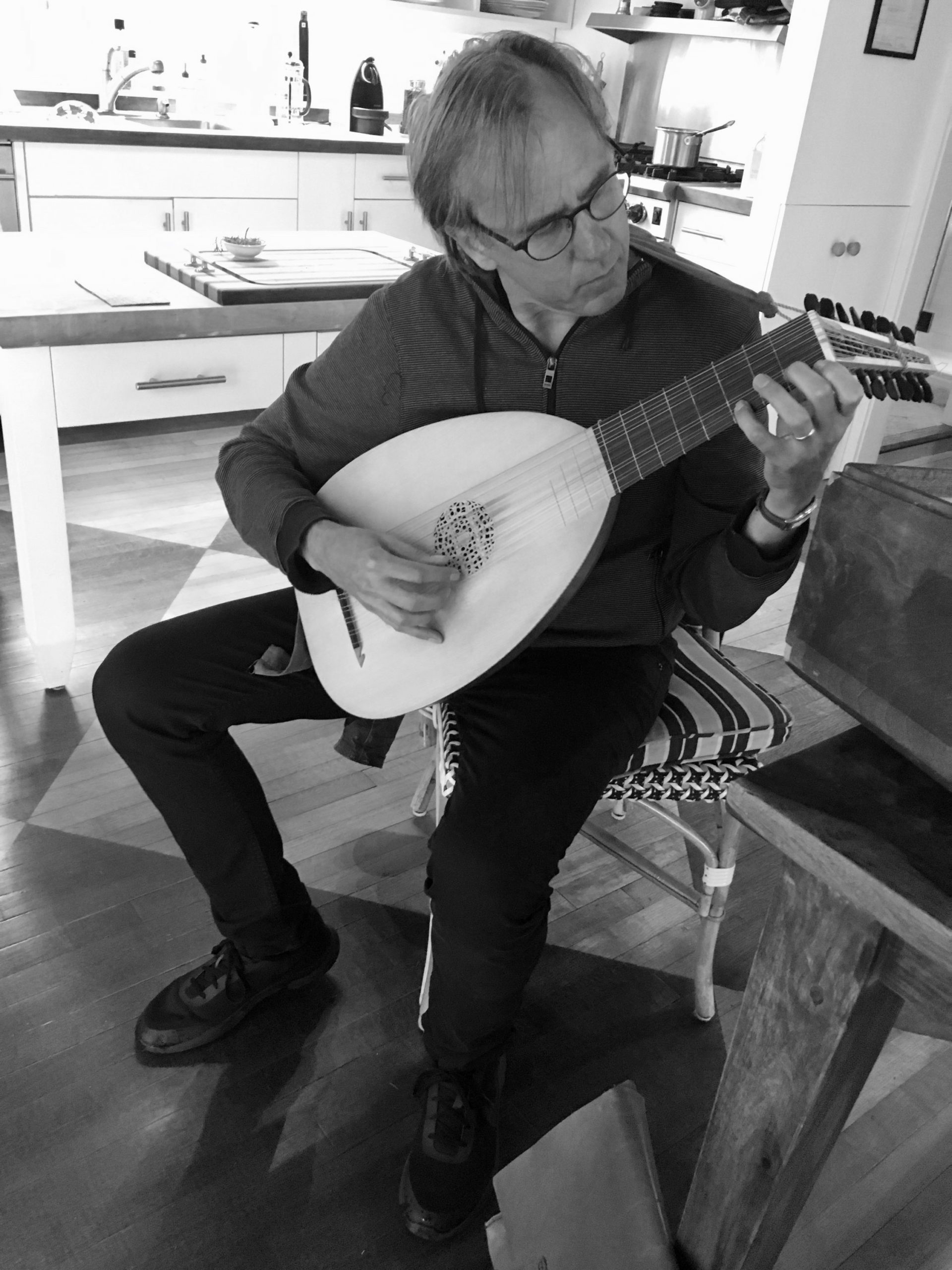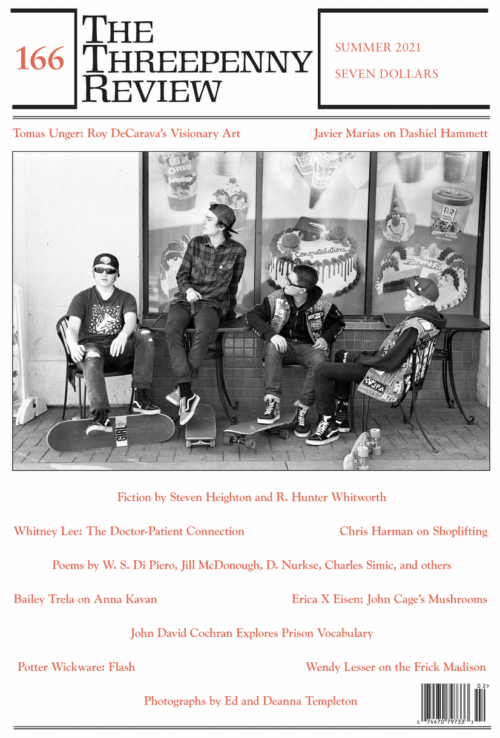1. The BoroughJames is walking down Main Street, he’s puttingOne foot ahead of the other, one, two,He’s watching an egretStepping through the reeds,Its body alert, then frozen, looking for fish.Why can’t he walk like that? Behind the broken-down wallThat’s Lynn and Jeff’s house.There’s the bench where somebody’s sittingEvery day but not today. TodayThe sun’s too hot or elseNot hot enough, the water clearEnough to see minnows quiveringIn the grass. BecauseI’m writing this,Call me Jim. 2. AdmonitionHe acknowledges the sins of the peopleIn the wilderness, people like him,But still he’s troubled by one:His pulse, his urine, his sweat—they all say nothing.Neither does he findChanges in his appetite,His mind neither corrupted nor infatuated—Yet his family, his closest friends,They see something imperceptible,Something always presentWhich has establishedAn empire inside him: hereThere are certain secrets d’etat neverTo be said out loudBy which he has been bound. 3. The EgretMy mother looked for fish here, my father, too.Probably you couldn’t have toldThem apart, but mother fledged me,Taught me to fly; then she was gone.I heard she met a terrible end. Can I say that?A terrible end. In the summer of ’68My father drove to NewarkFor art supplies: crowdsOf people in the street, open hydrants, shattered plate-glass.From then on the dent below the passenger-sideWindow of the ChevyWas from a thrown brick; there it stayedUntil the Chevy was replaced.Of famine, love, differenceOf skin I knew nothing. 4. First DayA boy folds his hands in his pockets, a teacher putsHer arm around you: you compose yourself.Compose, from the Old French composer,To put together, to write. InsideYou’re assigned a desk: even nowI’m sitting at a desk, I’m watching menFill a dumpster with furniture from an empty house.Quarantine, from quaranta giorni, the practice of keepingShips out of Venice for forty days. You never speakOf waiting outside the school,You run home for lunch.You like your egg-salad sandwichOn toast, you still do, but you knowAbout other languages: that morningYou learned a little song, Dites moi pourquoi. 5. WhyIn the beginning, people were visible powersOf nature, like the starsAnd the moon. What about God?Not that I’d had with himA quarrel, only that his service,As it was described to me, seemed disagreeable.The consequence was not,As anyone might expect,That I grew selfish or disrespectful, but when affectionCame, it came with a passionUncontrollable, at least by me, who’d neverHad anything to control. When youVisit here, as I hope you will,Carry a sign—Attestation—Certification of exceptional movement. 6. The LimousineImmediately after closing my eyes foreverI’m rambling through the boroughIn a big car: there’sThe Holy Ghost Society,And down by the waterYoung people, most of them wearingWide-brimmed hats, little else!We’re gliding down the length of Main StreetAt quarter to twelve in the morning,The car stopping at a house whereNow, no older than four,Maybe five, there’sLittle James still running,Glancing behind him, alsoLooking around.
Now and Then
Feature Date
- September 29, 2021
Series
Selected By
Share This Poem
Print This Poem
Copyright © 2021 by James Longenbach.
All rights reserved.
Reproduced by Poetry Daily with permission.

Langdon Hammer
James Longenbach is the author of six books of poems—most recently Forever, published this past June by W.W. Norton—and eight books of prose. His poems have appeared in The New Yorker, the Paris Review, the Nation, and elsewhere. The recipient of an Award in Literature from the American Academy of Arts and Letters and a Guggenheim Fellowship, among other honors, he lives in Rochester, New York.

Summer 2021
Berkeley, California
Editor and Publisher
Wendy Lesser
“Everyone should rush right out and subscribe to The Threepenny Review.”
—Tony Kushner
“There are vanishingly few magazines left in this country which seem pitched at the general literary reader and which consistently publish such interesting, high-quality criticism, reflection, argument, fiction, and poetry…Threepenny is thankfully still out there.”
—Jonathan Franzen
“The Threepenny Review is one of the most original literary magazines not only in the U.S. but also on the entire planet (as far as my experience allows me such a judgment). Why? Because it stands outside the fads of the day; it’s not driven by any intellectual group or fashion. What it does is give the readers the taste of many individual writers’ voices.”
—Adam Zagajewski
Poetry Daily Depends on You
With your support, we make reading the best contemporary poetry a treasured daily experience. Consider a contribution today.



